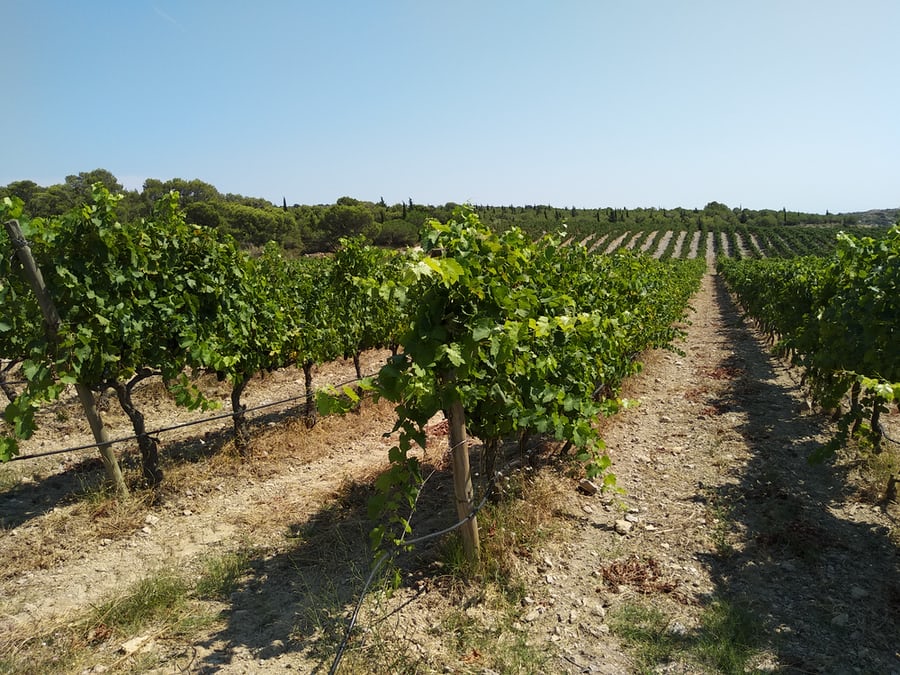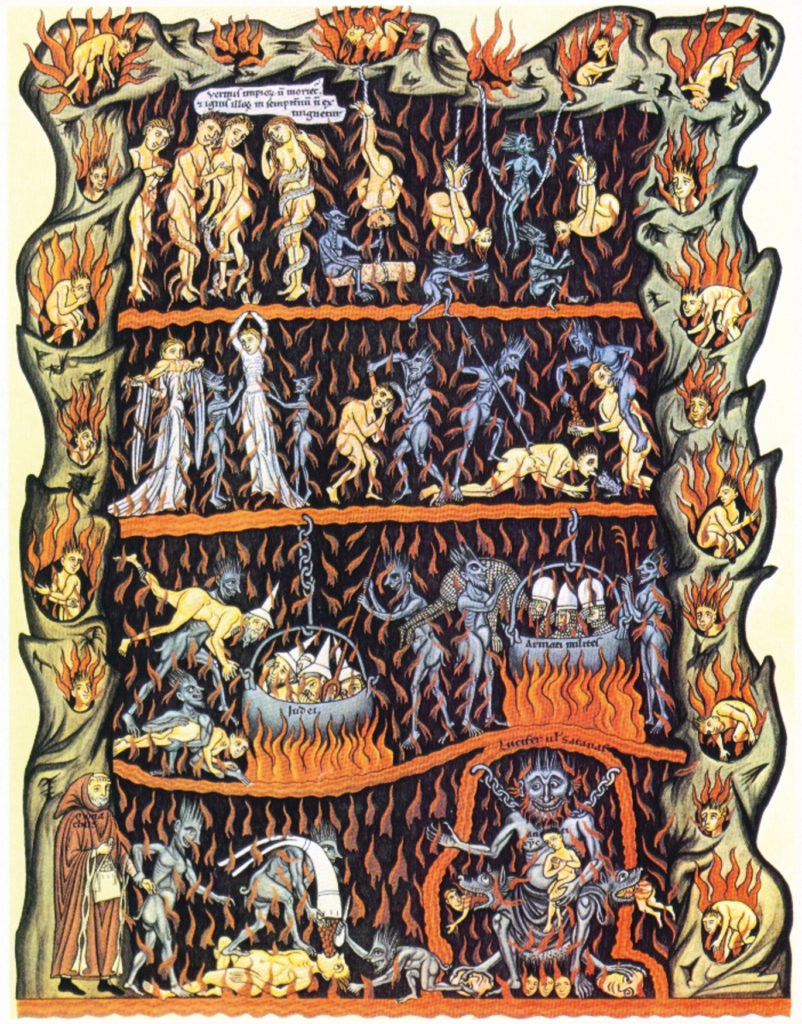MATTHEW GETS IT WRONG
There are several ways in which, in my opinion, Matthew gets Jesus wrong. Here I am going to concentrate on just two parables, the parable of the labourers in the vineyard, 20.1-16, and the parable of the wedding banquet, 22.1-15.
(Incidentally, no Biblical scholar believes that Matthew, one of the Jesus’ twelve disciples, wrote Matthew. It was written certainly after Mark and probably after Luke).
The Labourers in the Vineyard
This parable only occurs in Matthew, and it is noteworthy, to me, for being one of the few Matthaean parables to keep the straightforward Galilean peasant environment. It is a straightforward story with a single point like the parables we find in Luke. It is not an allegory. (Allegories make the details of a story represents different things, i.e. King = God, servants = angels etc.).

The story goes like this. A vineyard owner goes to the market place at 6.00 a.m. to hire day-labourers for the grape harvest. They haggle a bit, and he agrees to pay them the standard daily wage. The timing of the harvest grapes for winemaking is crucial. The grapes need to contain just the right amount of sugar, so when the grape harvest starts, speed is crucial. So the vineyard owner goes out again at 9.00 and hires more men, but doesn’t haggle, he just says he will pay them a fair wage. He goes out again at 12.00 and takes on more workers and again at 3.00. At 6.00 he finds workers still standing around “because no one has hired us,” (just like dockers in the bad old days of the London docks, when men had to stand ‘on the stones’ each day in the hope of being hired). He employs them too, again with a promise merely that he will treat them fairly. Finally he calls it a day at 7.00 pm, and he instructs his steward to pay them off, starting with the latest arrivals.

Now comes the surprise. He pays them all exactly the same! The latecomers are delighted, the men he hired at the beginning of the day are angry that they get nothing extra for having ‘borne the brunt of the day in the hot sun.’
The point of the parable is that the vineyard owner’s action is not only unfair but ridiculous. No reasonable person would act that way. What on earth is the point of the story? The point comes in the last statement by the vineyard owner. “Is your eye evil because I am generous?”
Jesus is defending his prophetic practice of offering instant forgiveness to all who come to him, whatever their past lives have been like. Those who can’t accept the idea of God’s overwhelming generosity can’t see straight. They are, in other words of Jesus, ‘blind guides’.
However, Matthew does not get the point. So he adds another moral to the parable. “So the last will be first and the first last.” This has nothing to do with the story, it merely takes an incidental detail and implicitly allegorises it. Who are the first? The Jews. And who are the last? The Gentiles. It would make sense to a church which is now largely Gentile, and where a permanent separation between Christians and Jews had happened. It is a moral which fits the second generation of Jesus followers.
The Wedding Banquet
In this parable, Matthew 22.1-15, we see clearly Matthew’s way of interpreting Jesus’ teaching, because we have a control passage in the parable of the Great Feast in Luke 14.16-24. Here is the story in Luke:
A man prepared a banquet and invited many people. At the time of the banquet he sent a slave to ask then to come. But all without exception sent their apologies. So the householder sent his slaves out to invite the homeless and beggars – blind, lame, crippled. And then those who were sleeping out in the open countryside. “Not one of those who were invited will taste of my banquet.”

What is going on here? I think I got the answer from my time as priest in Kingston upon Thames. In the locality was a Greek Cypriot property dealer called George who specialised in hostels for people on social security. I heard the story that he turned one house into a hostel without planning permission, and won the case because all the council’s papers disappeared from the solicitor’s office the day before the trial! I can imagine him celebrating with a big feast, and inviting all the leading officers to show there were no bad feelings. But in my imagination all made excuses because it would mean implicitly approving of the way he did things. So my guess is that the man in Jesus’ parable is a tax farmer, like Zacchaeus in Jericho (Luke 19.1-10). Rich but unpopular.
And the moral? God is much more surprising and much less respectable than the religious establishment believed. It was God who was behind Jesus’ call to the outsiders like tax collectors and prostitutes. It is fundamentally about God’s grace.
It is worth noticing that in Luke the story is prompted by a remark of someone having a meal with Jesus. They exclaim, “Blessed is the person who shall eat bread in the kingdom of God!” The story then is a direct response. It’s meaning? Don’t miss the invitation to eat bread in the kingdom of God because it comes for an unlikely source.
What about Matthew’s version?
Matthew 22.1-10 follows the same lines as Luke’s story, but with an unwarranted coda in verses 11-14. There are 5 significant differences.
1 The parable is made to relate specifically to the kingdom of heaven. This makes it more about the hoped-for future rather than our relationship with God here and now.
2 The main character is not just a householder. Now he is a king, clearly intended to represent God.
Another parable which Matthew relates is the parable of the sheep and the goats, 25.31-46 I think that the original parable was a simple story like the dragnet in Matthew 13.37-48. But the shepherd has become first the Son of Man in glory and then Jesus as the King at the last judgement.
3 The feast, an ordinary party dinner, has now become a wedding feast for the King’s son. It sounds as if this is going to be about the future state of the Church at the Second Coming, as in Revelation 19.7: ‘Let us rejoice and exult …for the marriage of the Lamb has come.’

4 Multiple servants. In Luke one servant is enough to invite the guests and report their apologies. In Matthew there are three sets of servants, plural.
- servants who call the invited guests to the feast.
- servants who describe to the guests all the preparations of the feast, and that everything is ready.. But the invitees laugh at the invitation, “They make light of it”, and go and do other things.
c) Then the servants are seized, treated shamefully and killed.
5 The King then wages war against these murderers, kills them and burns their city.
The whole story has become an elaborate allegory of the division between mainstream Jews and the new Christian moment, with the servants representing the prophets and apostles, culminating in the siege, capture and burning of Jerusalem by the Romans in 70 AD.
The Add-On
Not content with spoiling the simple story as recorded in Luke, Matthew has another trick up his sleeve.
‘But when the king came in to see the guests, he noticed a man there who was not wearing a wedding robe, and he said to him, “Friend, how did you get in here without a wedding robe?” And he was speechless. Then the king said to the attendants, “Bind him hand and foot, and throw him into the outer darkness, where there will be weeping and gnashing of teeth.” For many are called, but few are chosen.’ (Matthew 22.11-14)

It all sounds rather unfair. It’s worth asking what could be the point of the story. I think it came from a time when the Church felt the need to establish discipline among its members, of insisting on a way of living that did not disgrace the gospel. If you come to eat at the wedding feast, you have to wear a wedding robe; if you are a member of Christ’s church, your manner of life must be a credit to the Christian way. A valid point, but not one, I think that Jesus would have made. It fits better in a time when the Church was composed of second generation Christians. Unfortunately, it is an attitude that has led many people to find not freedom through the Christian Church but only an over-developed sense fo guilt.
And then the clincher. “Bind him hand and foot, and throw him into the outer darkness, where there will be weeping and gnashing of teeth.” There is a vindictive, if not a downright sadistic side to Matthew. This phrase occurs six times in Matthew, once in Luke and not at all in the rest of the Bible. In the other gospels Jesus does emphasise the seriousness of his call to repent and of the disaster looming if they don’t, but there is none of that gloating attitude to perpetual torment for the majority of the world’s population.

The real Jesus
I feel quite passionate about getting to know the real Jesus. He is the most challenging and thought-provoking person I know. Following him is for me the key to experiencing the Spirit of God making his home in us. If you want to get to know what Jesus said and did, read Mark’s gospel – it is the earliest one and the nearest we have to a first-hand account. Luke has amazing stories which bring Jesus and his message to life. But for me Matthew skews things. He editorialises. Take him with a pinch of salt.
The fourth gospel, John, amazing, I do think it was written by someone who was there, but it’s a different kind of gospel altogether.
